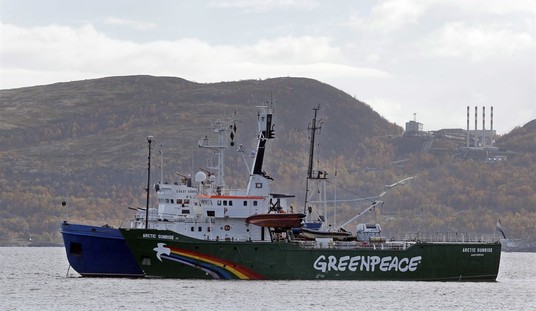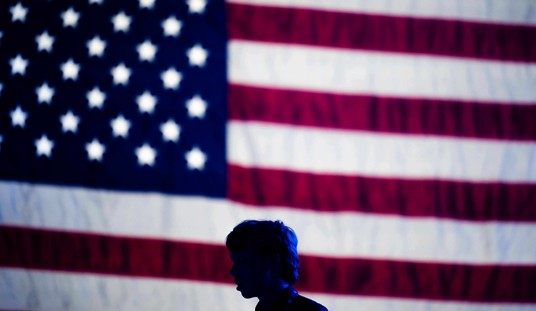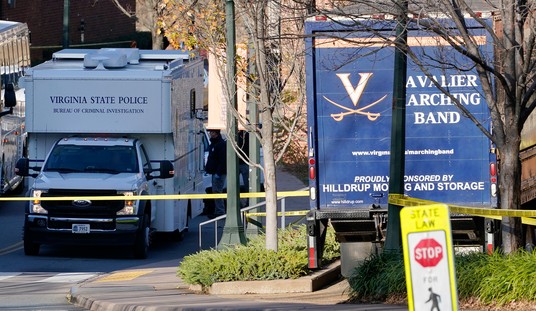Last night, Hollywood honored Argo as the Best Picture of 2012, a not-unexpected outcome, and there isn’t any doubt that Argo is a gripping, well-made tale. National Journal reminded us yesterday, though, that it’s only a sliver of a much larger story, a rare moment of triumph in a fifteen-month saga of impotence and failure in the face of injustice, extremism, and terrorism. The movie celebrates the courageous effort made by Canada and the US to rescue six Americans from the clutches of revolutionary Iran, but mostly ignores the 52 Americans held in captivity for 444 days while their government stood helpless.
Jill Lawrence makes sure we remember what happened to them during and after their captivity, and highlights an effort by the hostages to use the film’s success to finally get some justice:
Argo has been showered with honors, and is a strong contender for the best-picture Oscar at tonight’s Academy Awards. There’s no dispute that it is historically inaccurate and ignores a larger tragedy to focus on a tiny sliver of success associated with a humiliating chapter in the nation’s history. But give Argo its due. The film is serving to remind the country of a time, a place, and a debacle at what could be a pivotal moment in the history of the Iranian hostage crisis.
The former hostages and their advocates are mobilizing for a Capitol Hill push that they hope will be the final chapter in a 33-year quest for relief and for justice. In a few weeks, members of Congress will receive a packet of information that includes powerful statements and videos from the former hostages and their survivors. Some will be telling their stories publicly for the first time. One of them is Steven Lauterbach, whose written account opens with this sentence: “I slashed my wrists while in captivity in Iran.”
The hostages were among the first victims of Islamic terrorism — yet unlike subsequent victims, they have never received the satisfaction of a court judgment against a state sponsor of terrorism, or financial compensation drawn from its assets. For decades they have tried and failed to navigate a web of conflicting legal opinions, court reversals, and changing terrorism policies. And for decades they have been thwarted by the 1981 Algiers Accords, in which Iran agreed to release the hostages and President Carter agreed to bar lawsuits by them and their families. One Congress after another has been unable or unwilling to surmount presidential administrations and court rulings that have kept the accords in force. The Supreme Court last year ended the possibility of suing under current law, leaving Congress to find a solution.
With its suspected march to nuclear weaponry and broad sponsorship of global terrorism, Iran presents America and the world with problems much deeper than how to tie up the loose ends of a 1980 crisis. Yet the dark details of their captivity and its long-term impact – the depression, the nightmares, flashbacks, divorces, and physical illnesses– are bound to add urgency to the former hostages’ cause, as is their advancing age (a dozen of the 52 have since died).
Read it all, and be sure to take some time to watch a few of the videos of the former hostages and their families to understand just how little attention has been paid to providing them justice. Here is Foreign Service officer Steven Lauterbach on just how desperate he was to be allowed some human contact:
You can read my review of Argo here, but Bill Daugherty’s may carry a lot more weight in relation to historical perspective:
I doubt these people will see real justice in their lifetimes, but it would be nice if the American government took more of an interest in an attempt to provide it. If Argo provides the impetus to make that effort, then it deserves every accolade it receives.








Join the conversation as a VIP Member